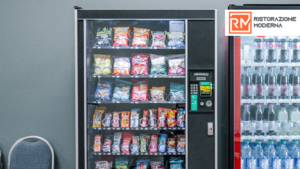
“Sustainability is a topic that touches on various aspects of a vending company’s activity – underlined Massimo Trapletti, President of Confida – from energy and warehouse management, to sustainability in transport, from the choice of food products to waste management. The association has created a series of projects to make break areas of companies, public bodies, schools and universities sustainable, such as RiVending , which aims to recycle coffee cups and PET bottles, and the collaboration with Fondazione Banco Alimentare to fight food waste”. Thanks to the agreement with this third sector reality, Italian vending has already collected and donated 74 tons of food products throughout the country. At the same time, companies are also making an individual commitment: 37% of them, in fact, adopt specific initiatives to fight food waste . There is also a high level of attention to policies and initiatives to combat climate change and protect the environment: approximately 60% of companies have adopted a medium-long term development plan dedicated to these issues and 50% also evaluate new suppliers based on environmental sustainability criteria with the aim of involving the entire chain in achieving the objectives. Furthermore, 41% of companies participate in circular economy programs and 31% use electric vehicles.
The study carried out for the Confida report also shows that 50% of vending companies produce a sustainability report and 60% have appointed a manager dedicated to the topic . The sector, in particular, pays close attention to food safety since vending machines are real refreshment points that comply with all hygiene and safety regulations, the so-called HACCP system, to protect the health of the end consumer. Furthermore, thanks to the collaboration with the CSQA body, the TQS Vending certification was created , which requires operators in the sector to have quality standards that are higher than those required by law. Even for coffee, the most sold product in vending machines, a further quality certification was created, DTP-114 , which defines specific functional quality parameters.
[…]
Source: ristorazionemoderna.it